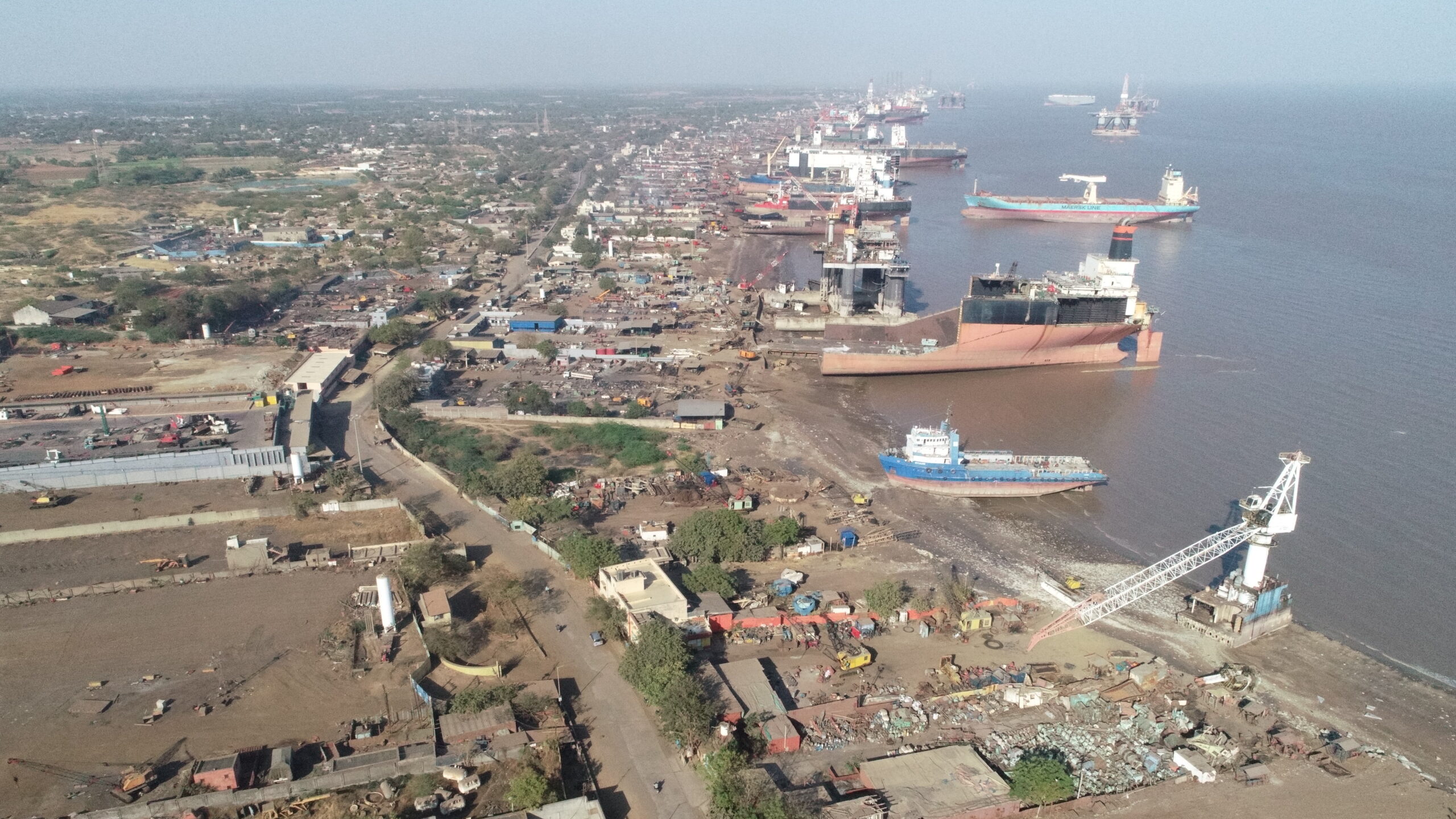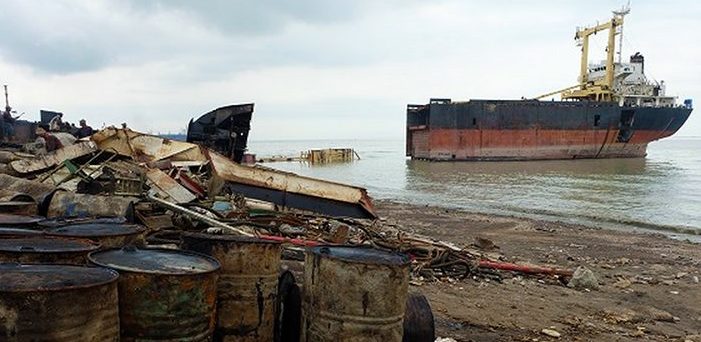Global Ship Recycling Sector Faces Subdued Prospects Amid Geopolitical and Economic Turmoil

As we near the close of the third quarter of 2024, the global ship recycling industry is grappling with a bleak outlook, according to the latest report from GMS, the world’s largest buyer of ships for recycling. The situation is being shaped by a complex mix of macro and microeconomic factors, each contributing to the industry’s malaise.
Geopolitical Turbulence in the Middle East Escalates
On the macroeconomic front, geopolitical tensions in the Middle East have intensified, further dimming hopes for near-term stability. The Israeli-Palestinian conflict continues to flare, with Israel’s military operations against Hamas showing no signs of abating. Since the horrific events of October 7, when Hamas carried out a large-scale attack against Israeli civilians, Israel has vowed to eliminate the group. The conflict has been marked by intermittent pauses in hostilities, allowing for the delivery of critical humanitarian aid and polio vaccines. Despite these brief reprieves, the violence persists, with increasing skirmishes between Hezbollah militants and Israeli Defense Forces (IDF) along the northern border.
The maritime industry has been directly impacted by these rising tensions. The Red Sea, a crucial artery for global shipping, remains fraught with danger after a series of attacks on merchant vessels. Notably, the Greek-controlled tanker *SOUNION* continues to burn in the Red Sea after suffering an attack, with efforts to rescue the ship proving futile. Though the Houthi rebel group, active in Yemen, has been relatively quiet this week, the region’s shipping lanes remain on high alert. Further complicating matters, U.S. bases in the region have been targeted by ISIS fighters in a coordinated retaliatory effort. In response, Western powers, including the United States and its allies, have repositioned naval assets to the region, further stoking the geopolitical fires.
As these geopolitical dynamics continue to evolve, the ramifications for the shipping and ship recycling industries are substantial. The heightened conflict has led to disruptions in maritime trade routes, driving up the cost of shipping insurance and adding layers of complexity to already fragile global supply chains.
A Grim Outlook for the Indian Subcontinent’s Recycling Industry
Shifting focus to the microeconomic front, the ship recycling sector in India continues to be mired in decline. The once-bustling industry has been on a downward trajectory since early June, and the first weeks of September offer little hope of a recovery. Hopes for the typical Q4 resurgence that the industry has historically enjoyed have now all but evaporated. This downturn marks a significant shift from the sector’s earlier growth periods, and it appears that the Indian ship recycling market is unlikely to recover before the end of 2024.
One of the key factors contributing to this slump is the influx of cheaper Chinese steel into India and Pakistan, which has undercut local steel production. This has placed tremendous pressure on the domestic markets, driving down steel plate prices and reducing the profitability of shipbreaking operations. The once-thriving recycling yards in Alang, Gujarat—the heart of India’s ship recycling industry—now struggle to remain competitive amid the influx of low-cost steel from China.
Bangladesh, another key player in the subcontinent’s ship recycling market, is facing its own set of challenges. The country is grappling with severe political strife and widespread flooding, both of which have further dampened the outlook for the industry. The combination of natural disasters and political instability has stunted the ability of Bangladeshi recyclers to operate at full capacity. As a result, the number of ships being dismantled has dropped significantly, further exacerbating the downturn in the region.
Overall, ship recyclers in the subcontinent have seen a steady decline in shipbreaking activity, with very few vessels being offered for sale. As demand for recycled steel plummets, recyclers have been forced to offer lower prices to secure contracts. Since the peak earlier in the year, the price per lightweight displacement ton (LDT) has fallen by approximately USD 65, with offers below USD 500 per LDT becoming the norm. This sharp decline has further reduced the profitability of shipbreaking in the region, pushing many operators to the brink of closure.
Freight Markets Add to the Pressure
Freight markets, meanwhile, present a double-edged sword for the ship recycling industry. On the one hand, freight rates have remained relatively strong, keeping ships employed for longer periods and reducing the immediate need for scrapping older vessels. While this is good news for shipowners, it has led to a dearth of available ships for recycling, starving the shipbreaking industry of supply.
With fewer ships heading to the breakers’ yards, ship recyclers are facing increased competition for a dwindling number of vessels. This scarcity of recycling candidates has contributed to the significant drop in recycling activity this year, a trend that is likely to continue into 2024. Shipowners who are looking to offload older vessels are being forced to accept lower prices, further adding to the industry’s woes. Volatility in the global economy and uncertainty surrounding future demand for recycled steel have anchored in, making it difficult for recyclers to plan for the future.
Turkey’s Ship Recycling Industry Follows Suit
Turkey, another significant player in the global ship recycling market, has not been immune to the broader downturn. Prices in the Turkish market have fallen precipitously, with offers now approaching USD 300 per metric ton, a sharp decline from earlier in the year. Like their counterparts in the subcontinent, Turkish recyclers are facing significant challenges as they struggle to remain competitive in the face of falling steel prices and reduced demand for recycled materials.
As we look ahead to the final quarter of 2024, the outlook for the global ship recycling industry remains bleak. With major markets across the world experiencing price declines and a lack of available vessels for recycling, the industry is likely to remain in a state of stagnation. The once-booming ship recycling yards in India, Bangladesh, and Turkey are now being sustained by the scrapping of only the oldest, most dilapidated vessels, many of which are “held together by rust and love.”
The global ship recycling industry is at a crossroads, facing a confluence of challenges that have created an environment of uncertainty and instability. Geopolitical tensions, economic pressures, and disruptions in global trade have combined to create a perfect storm, leaving little room for optimism. As the industry limps towards the end of 2024, stakeholders will be hoping for a reprieve, but for now, the outlook remains grim.
Author: shipping inbox
shipping and maritime related web portal








